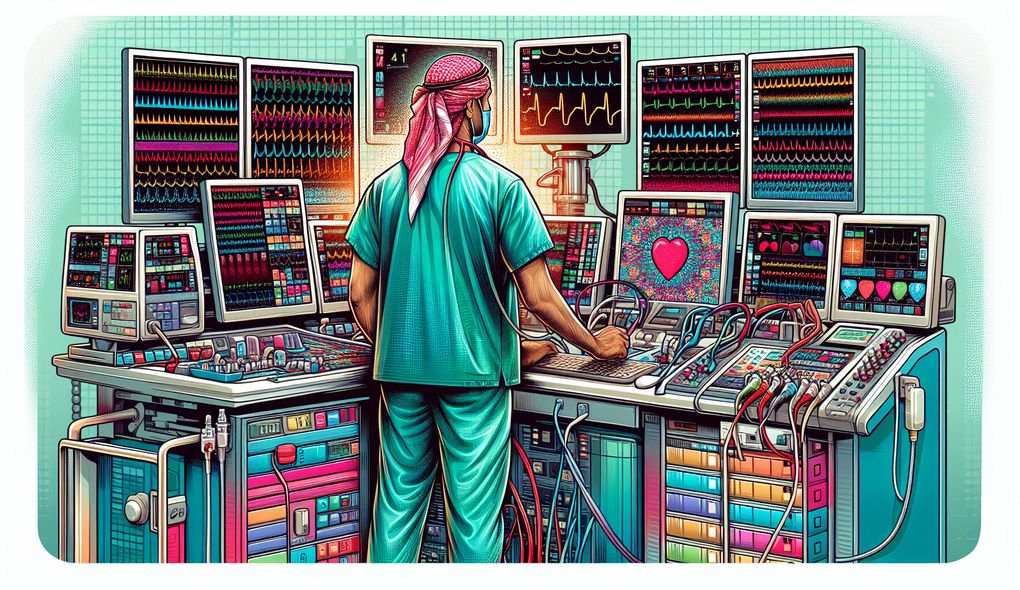Tell us about a time when you encountered a difficult patient in the telemetry unit and how you dealt with the situation.
SENIOR LEVEL

Sample answer to the question:
During my time in the telemetry unit, there was a difficult patient who was agitated and uncooperative. They refused to wear the telemetry monitoring devices and became verbally aggressive towards the nursing staff. To handle the situation, I remained calm and empathetic, trying to understand their concerns and fears. I explained the importance of wearing the monitoring devices and the benefits it would bring to their care. I also involved the patient's family to provide support and reassurance. Eventually, the patient agreed to wear the devices, and I continued to monitor their vital signs closely, ensuring their safety and well-being.
Here is a more solid answer:
In the telemetry unit, I encountered a difficult patient who was agitated and uncooperative. They refused to wear the telemetry monitoring devices, which posed a risk to their health. Recognizing the need for immediate action, I took charge of the situation and assembled the nursing team. I provided clear instructions on how to approach the patient and address their concerns while ensuring everyone's safety. Additionally, I leveraged my strong communication skills to engage the patient in a calm and empathetic conversation, taking the time to understand their perspective. I explained the importance of wearing the monitoring devices in monitoring their vital signs accurately and addressing potential health issues promptly. To address their fears, I involved the patient's family, explaining the benefits of telemetry monitoring and seeking their support in convincing the patient. Finally, through effective collaboration and problem-solving, we succeeded in persuading the patient to wear the devices, ensuring their safety and enabling accurate monitoring of their vital signs.
Why is this a more solid answer?
The solid answer expands on the basic answer by providing specific details on how the candidate demonstrated leadership by assembling the nursing team, making decisions to address the situation, and using strong verbal communication skills. The candidate also demonstrates their proficiency in using healthcare IT systems by utilizing telemetry monitoring devices to monitor the patient's vital signs.
An example of a exceptional answer:
In the telemetry unit, I encountered a difficult patient who not only refused to wear the telemetry monitoring devices but also displayed aggressive behavior towards the nursing staff. Recognizing the urgency of the situation, I immediately took charge and assigned roles to each member of the nursing team, ensuring efficient and coordinated care. I utilized my expertise in telemetry nursing to explain the potential consequences of not wearing the devices, emphasizing the critical role they played in detecting any deterioration in the patient's condition. To address the patient's concerns, I actively listened to their fears and frustrations, validating their emotions and providing reassurance that their well-being was our top priority. I collaborated with the healthcare team and involved the patient's primary care physician to explore alternative solutions that would address the patient's anxieties. By employing my advanced problem-solving abilities, I identified a compromise: using a different type of monitoring device that the patient found more comfortable. With the patient's consent, we implemented this solution, leading to improved compliance and a calmer environment in the telemetry unit.
Why is this an exceptional answer?
The exceptional answer provides a detailed account of the candidate's actions in handling a difficult patient, showcasing their exceptional leadership skills in assigning roles to the nursing team and efficiently coordinating care. The candidate also demonstrates their ability to make decisions by exploring alternative solutions and utilizing their expertise in telemetry nursing. Additionally, the candidate displays strong verbal communication skills and advanced problem-solving abilities. The mention of involving the patient's primary care physician highlights the candidate's ability to collaborate effectively with other healthcare professionals. The exceptional answer stands out by offering a creative solution to address the patient's concerns and improve compliance.
How to prepare for this question:
- Reflect on past experiences in dealing with difficult patients and how you effectively resolved the situation.
- Highlight instances where you demonstrated leadership and the ability to make quick decisions in high-stress environments.
- Practice explaining the importance of telemetry monitoring to patients and addressing their concerns and fears.
- Familiarize yourself with different types of telemetry monitoring devices and their functionalities.
- Stay updated on advances in telemetry technology and understand how to use healthcare IT systems effectively.
What are interviewers evaluating with this question?
- Ability to lead and educate a nursing team.
- Excellent decision-making and problem-solving abilities.
- Strong verbal and written communication skills.
- Proficiency in using healthcare IT systems.

